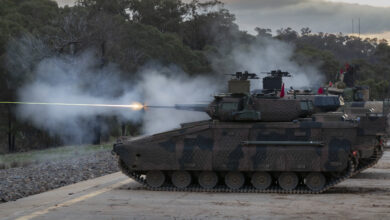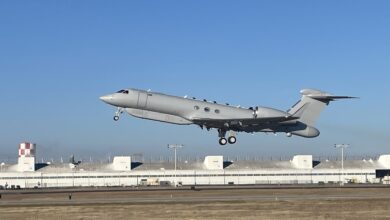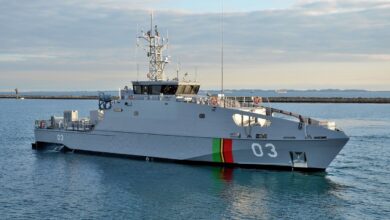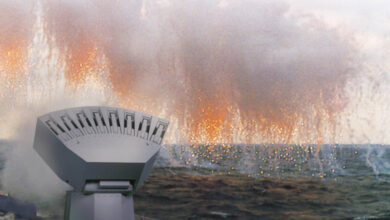Australia to Acquire 20 C-130J Military Transport Aircraft for $6.6 Billion
The Australian government will purchase 20 new C-130J Hercules military transport aircraft for the Royal Australian Air Force for 9.8 billion Australian dollars ($6.62 billion).
The aircraft will replace and expand upon the fleet of 12 C-130Js operated by the Australian Air Force.
The No. 37 Squadron at RAAF Base Richmond in New South Wales will continue to operate the aircraft, with delivery expected to start in late 2027.
Roles and Features
The Australian armed forces rely on Lockheed Martin transport aircraft to deploy personnel, equipment, and humanitarian supplies.
The aircraft has been used for search and rescue missions, disaster relief, and medical evacuation.
The aircraft’s maximum takeoff weight is 164,000 pounds (74,393 kilograms), and it can carry a payload of up to 44,000 pounds (9,958 kilograms).
The jet has a maximum speed of 410 miles (660 kilometers) per hour and a ceiling of 28,000 feet (8,615 meters).
Force Multiplier
The aircraft’s aft loading ramp and door accommodate a range of military equipment and platforms, such as “oversized cargo, including everything from utility helicopters and six-wheeled armored vehicles to standard palletized cargo and military personnel.”
Australia is reportedly looking into using the C-130J for the swift deployment of HIMARS close to enemy lines.
Boost to Local Industry
The acquisition will help benefit Australia in the construction of facilities and infrastructure and in sustaining the aircraft.
“Having 20 aircraft, up from 12, will mean more opportunities for local industry to sustain the aircraft, creating more Australian jobs,” Minister for Defence Industry Pat Conroy said. “There’ll also be jobs associated with infrastructure redevelopments at RAAF Base Richmond.”
Deputy Prime Minister and Minister for Defence Richard Marles added: “The C-130J Hercules is an important capability for our defence force, but also for Australia as a nation.”
“From bushfire and flood emergencies across the country, the delivery of crucial supplies to the region during the COVID-19 pandemic, and more than two decades supporting peacekeeping operations, this has and will continue to be a crucial asset.”












